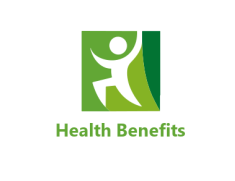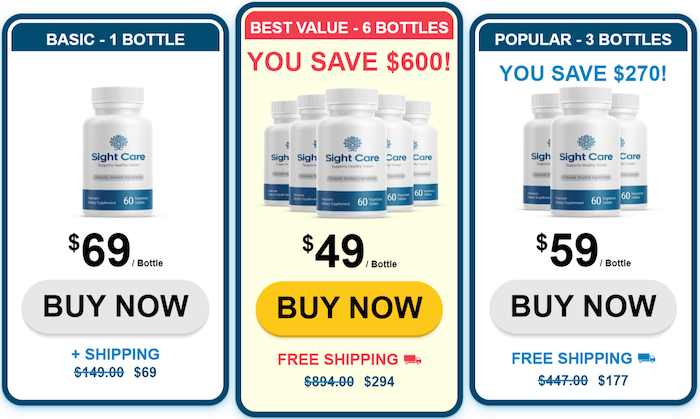A Better Vision is Our Responsibility.
Eye health supplements support vision and protect eyes with nutrients like vitamins (A, C, E), lutein, zeaxanthin, and omega-3s, reducing risks of conditions like macular degeneration.

Did you know that over 2.2 billion people worldwide struggle with some form of vision impairment? Yeah, it’s a staggering number. As someone who’s spent far too much time squinting at screens and ignoring the little things that keep my eyes healthy, I can tell you that taking care of your vision isn’t something to brush off. Our eyes are working overtime every day, and sooner or later, they start asking for a little help.
This is where eye health supplements come in. They’ve been popping up everywhere lately, promising everything from sharper vision to relief from dry eyes. But are they really worth the hype? What should you look for in a supplement? And how do you even know which ones work?
In this guide, we’re diving into everything you need to know about eye health supplements—how they work, what benefits they offer, and, most importantly, which ones deserve your money. Whether you’re looking to fight off digital eye strain, protect your vision as you age, or just keep your eyes in tip-top shape, this guide has you covered.
What Are Eye Health Supplements?
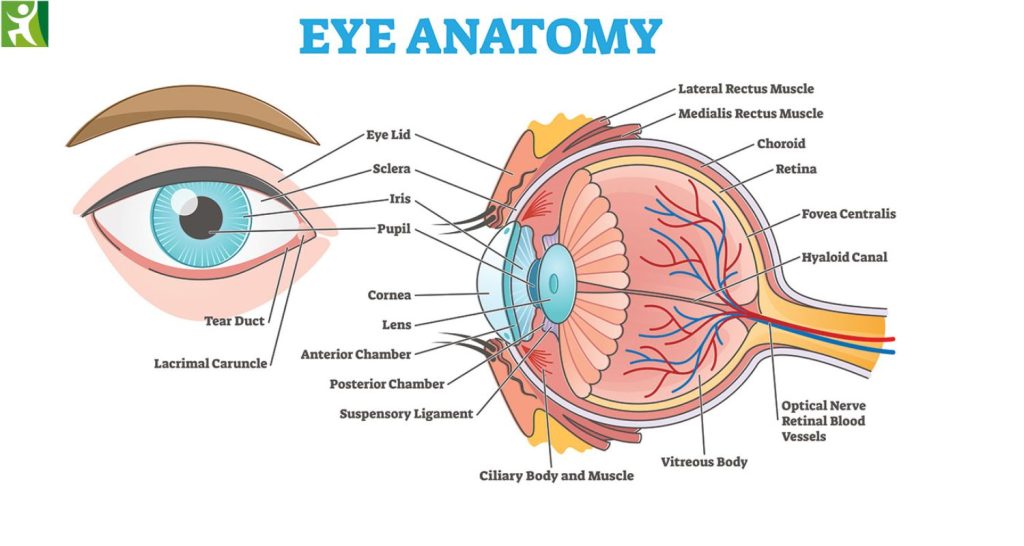
Eye health supplements are specially formulated products designed to support and improve your vision and overall eye health. Think of them as a concentrated dose of the nutrients your eyes crave, packed into a convenient capsule, tablet, or gummy. For many of us who might not always eat the perfect diet, these supplements can help fill in the gaps.
Most eye supplements contain a blend of key ingredients that research has shown to be beneficial for eye health. For example, you’ve probably heard of lutein and zeaxanthin—two powerful antioxidants known as carotenoids that help protect your eyes from harmful blue light and reduce the risk of age-related macular degeneration (AMD).
Other common ingredients include:
- Omega-3 fatty acids: These are amazing for reducing dry eye symptoms and supporting retinal health.
- Vitamin A: Essential for preventing night blindness and keeping your eyes moist.
- Vitamin C and E: Antioxidants that protect your eyes from oxidative stress and slow the progression of cataracts.
- Zinc: Helps your body absorb vitamin A and also supports retina function.
But here’s the kicker—not all eye health supplements are created equal. Some have scientifically proven ingredients in the right doses, while others are just overpriced pills with flashy marketing. That’s why it’s so important to understand what’s in them and how they work.
Whether you’re someone who spends hours staring at screens (like me!) or you’re trying to protect your vision as you age, eye supplements can be a simple way to give your eyes the TLC they need.
Key Benefits of Eye Health Supplements
When it comes to taking care of your vision, eye health supplements can make a world of difference. They’re not some magical cure-all, but they can support and even improve your eye health in ways you might not expect. Here are some of the biggest benefits:
Improved Overall Vision:
Let’s be honest—most of us don’t think about our eyesight until we’re struggling to see that tiny text on our phone or fumbling with the car dashboard at night. Eye supplements, especially those rich in lutein, zeaxanthin…
Relief for Digital Eye Strain:
If you’re like me and spend hours glued to a screen, you’ve probably felt the burning, dryness, or blurry vision that comes with digital eye strain. Ingredients like omega-3 fatty acids and lutein are lifesavers



Reduced Risk of Eye Fatigue:
If your eyes feel tired or strained by the end of the day, you’re not alone. Eye supplements can help reduce fatigue by supporting the health of your eye muscles and improving blood flow to the retina.
Relief for Digital Eye Strain:
If you’re like me and spend hours glued to a screen, you’ve probably felt the burning, dryness, or blurry vision that comes with digital eye strain. Ingredients like omega-3 fatty acids and luteinare lifesavers for reducing dryness
Support for Long-Term Eye Health:
The best thing about eye supplements? They’re an investment in the future. By taking them regularly, you’re giving your eyes the tools they need to stay healthy and resilient for years to come.
Pro Tip: While supplements are a great addition to your routine, they work best when combined with a balanced diet, regular eye exams, and proper screen habits. Think of them as part of a bigger plan for keeping your vision in top shape.
Essential Ingredients to Look For
Not all eye health supplements are created equal. Some are packed with scientifically backed nutrients that can work wonders for your eyes, while others are filled with fluff. Knowing which ingredients to look for can make all the difference. Here’s a breakdown of the must-haves in any quality eye supplement:
1. Lutein and Zeaxanthin
Why They’re Important: These are carotenoids, a type of antioxidant that’s highly concentrated in your retina. They help protect your eyes from harmful blue light and reduce the risk of age-related macular degeneration (AMD). Think of them as your eyes’ natural “sunglasses.” Foods That Contain Them: Spinach, kale, corn, and eggs.

2. Omega-3 Fatty Acids
Why They’re Important: Omega-3s, particularly DHA and EPA, are essential for maintaining the health of your retina and reducing inflammation. They’re also fantastic for relieving dry eyes by improving tear production. Foods That Contain Them: Fatty fish like salmon, tuna, and mackerel, or plant-based sources like flaxseed and chia seeds.
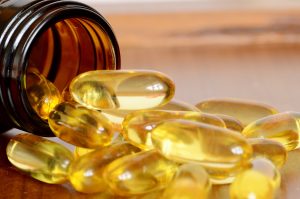
3. Vitamin A
Why It’s Important: Vitamin A is crucial for maintaining good night vision and preventing dry eyes. A deficiency can lead to severe vision problems, including night blindness. Foods That Contain It: Carrots, sweet potatoes, and liver.

4. Vitamins C and E
Why They’re Important: These antioxidants protect your eyes from oxidative stress caused by free radicals. Vitamin C can also help slow the progression of cataracts, while Vitamin E is excellent for retinal health. Foods That Contain Them: Vitamin C: Oranges, bell peppers, and strawberries. Vitamin E: Nuts, seeds, and vegetable oils.

5. Zinc
Why It’s Important: Zinc is a powerhouse mineral that helps your body absorb vitamin A and supports the functioning of your retina. It’s particularly effective in reducing the risk of AMD. Foods That Contain It: Shellfish, red meat, and legumes.

6. Copper
Why It’s Important: Copper is often included in eye supplements to balance the high zinc levels. Both minerals work together to support overall eye health. Foods That Contain It: Nuts, seeds, and whole grains.

7. Antioxidants
Why They’re Important: These antioxidants help protect your eyes from oxidative damage and inflammation. Astaxanthin, in particular, has improved blood flow to the eyes. Foods That Contain Them – Astaxanthin: Found in algae and seafood like salmon and krill. Beta-carotene: Found in carrots, pumpkins, and sweet potatoes.

8. B Vitamins (Especially B2 and B12)
Why They’re Important: B vitamins support healthy nerve function in your eyes and can reduce the risk of certain eye conditions, like macular degeneration. Foods That Contain Them: Eggs, dairy, and fortified cereals.
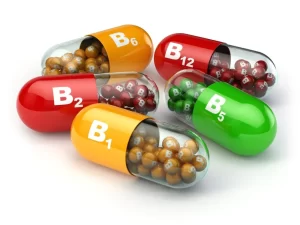
9. Grape Seed Extract
Why It’s Important: Rich in antioxidants, grape seed extract has been linked to improved eye circulation, which can help maintain healthy vision. Foods That Contain It: Grapes!

10. Bilberry Extract
Why It’s Important: This lesser-known ingredient is packed with anthocyanins, which may improve night vision and reduce eye fatigue. Foods That Contain It: Bilberries (similar to blueberries).
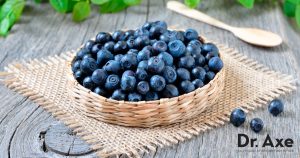
How to Spot Quality Supplements
- Look for products with clinically proven ingredients like those in the AREDS2 formula (lutein, zeaxanthin, vitamins C and E, zinc, and copper).
- Check for certifications like USP or NSF to ensure quality and purity.
- Avoid supplements with vague or proprietary blends that don’t list exact dosages.
Now that we’ve covered the essentials, are you ready to dive into the next section, Reviews of the Top Eye Health Supplements? Let me know!
Do Eye Supplements Work?
Ah, the million-dollar question—do eye supplements live up to the hype? The short answer: is yes, but with a catch. Eye supplements can work wonders for supporting and protecting your vision, but their effectiveness largely depends on what you’re taking, why you’re taking it, and how consistent you are.

The Science Behind Eye Supplements
There’s solid research backing the effectiveness of certain nutrients for eye health. One of the most well-known studies is the AREDS (Age-Related Eye Disease Study), conducted by the National Eye Institute. It found that a specific combination of vitamins and minerals—including vitamin C, vitamin E, zinc, copper, lutein, and zeaxanthin—can slow the progression of age-related macular degeneration (AMD).
For conditions like dry eyes, omega-3 fatty acids have been shown to reduce inflammation and improve tear production, giving much-needed relief to people who spend hours staring at screens.
But here’s the thing—not all supplements are backed by the same level of science. Some contain well-researched ingredients in the right doses, while others are just overpriced multivitamins with fancy marketing.
Real-Life Success Stories
Many people swear by eye supplements for improving their vision or managing specific issues like dryness or strain. I started taking omega-3 supplements a couple of years ago after my eyes began feeling like sandpaper every time I worked late. It wasn’t an overnight miracle, but within a month, the redness and dryness were noticeably better.
Common Misconceptions
- “Supplements can replace a healthy diet.” Nope! Supplements are meant to complement your diet, not replace it. If you’re eating plenty of fruits, veggies, and fish, you might not even need them.
- “They’ll fix my vision overnight.” Eye supplements aren’t quick fixes. It takes time—weeks, sometimes months—to see results.
- “One supplement fits all.” The right supplement for you depends on your specific needs, like dry eyes, AMD prevention, or blue light protection.
The Limitations
While supplements can help prevent or slow the progression of eye problems, they won’t reverse severe damage or correct vision issues like nearsightedness or astigmatism. For that, you’ll need glasses, contacts, or medical treatments like LASIK.
The Bottom Line
Do eye supplements work? Yes, but only if you choose high-quality products with scientifically backed ingredients and realistic expectations. They’re not magic pills, but they’re a valuable tool in keeping your vision sharp and your eyes healthy.
Sight Care
Product Name | Sight Care |
Type | Dietary Supplement. |
Purpose | Supports vision health and eye function. |
Key Ingredients | Lutein, Zeaxanthin, Bilberry Extract, L-Lysine, N-Acetyl-L-Cysteine, etc. |
Recommended Dosage | Two capsules per day with water. |
Supply Duration | 30 days per bottle. |
Purchase Locations | Official website only. |
Shipping | Free shipping for bulk orders within the US. |
Refund Policy | 180-day money-back guarantee. |
Bonus Guide | “The Truth About Vision” guide for purchasers of three or six bottles. |
Customer Feedback | Mostly positive Sight Care reviews are recorded. |
Side Effects | Generally well-tolerated; some may experience mild digestive issues. |
Price | – 1 bottle: $69 |
To Buy | |
Rating | 8.1 |
Reviews of the Top Eye Health Supplements
Not all eye health supplements are created equal, so it’s essential to separate the great from the mediocre. Here’s a list of some of the top-rated eye supplements on the market, what makes them stand out, and who they’re best suited for.
This formula provides each of the 11 eye-restoring ingredients, in dosages that are supported by scientific studies.
It’s called…
SightCare
SightCare represents the next generation of vision-improving science.
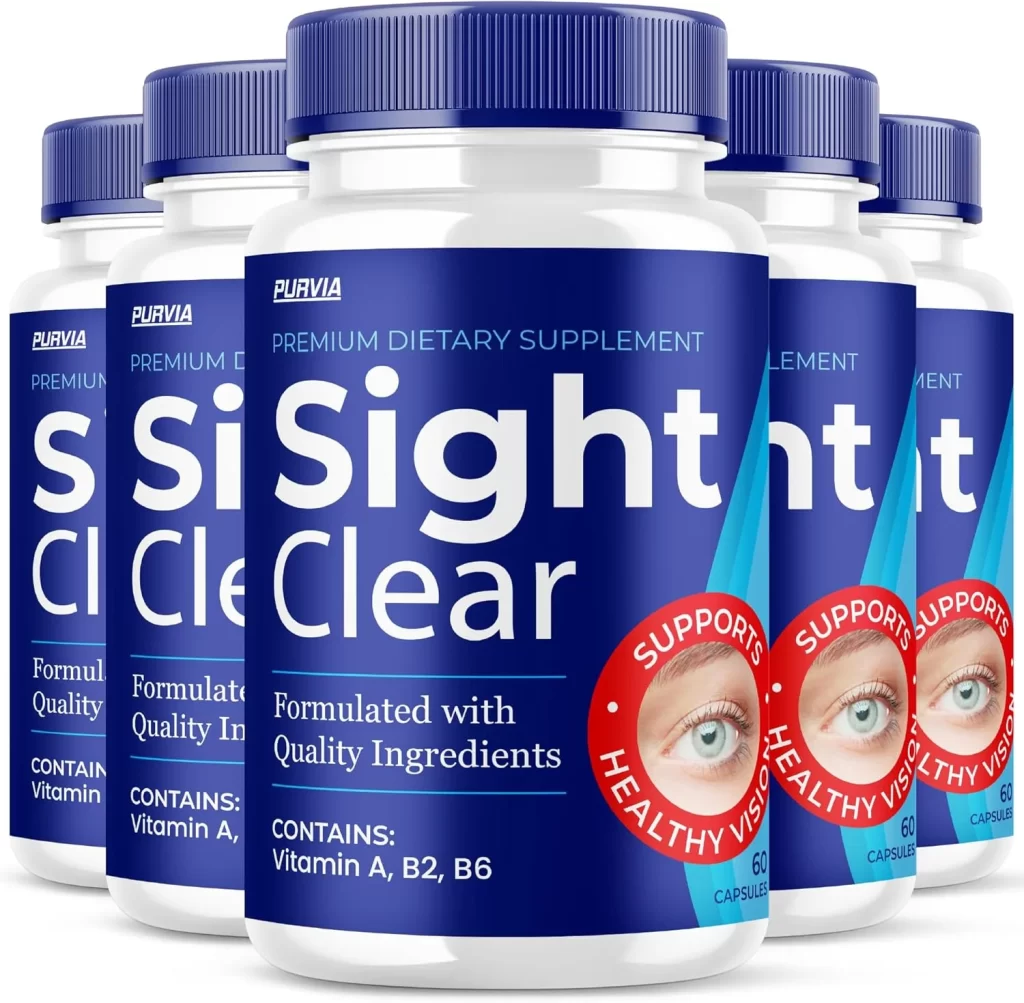
1. PreserVision AREDS 2 Formula
Why It’s Popular: This supplement is based on the AREDS2 clinical study, which proved its effectiveness in reducing the risk of age-related macular degeneration (AMD). It contains lutein, zeaxanthin, zinc, copper, and vitamins C and E.
2. Ocuvite Lutein & Zeaxanthin
Why It’s Popular: This product focuses on providing high doses of lutein and zeaxanthin to protect against blue light and support macular health. Those exposed to a lot of screen time or looking for general eye health support.
3. TheraTears Eye Nutrition Omega-3 Supplement
Why It’s Popular: This supplement is packed with high-quality omega-3 fatty acids, particularly DHA and EPA, to relieve dry eye symptoms and support overall eye health. People suffering from dry eyes or looking to improve tear production.
4. Vision Support + by Nature’s Bounty
Why It’s Popular: This supplement combines lutein, zeaxanthin, and a blend of antioxidants to support macular and retinal health. It’s affordable and widely available. Budget-conscious individuals looking for basic eye health maintenance.
5. EyePromise Restore
Why It’s Popular: EyePromise Restore includes a mix of lutein, zeaxanthin, omega-3s, and other antioxidants to provide comprehensive eye health support. People are looking for an all-in-one supplement with strong antioxidant protection.
6. Dr. Tobias Omega 3 Fish Oil
Why It’s Popular: While not an exclusive eye supplement, its high concentration of DHA and EPA makes it excellent for dry eyes and retinal support. People are seeking targeted omega-3 supplementation for their eyes and overall health.
7. Nordic Naturals ProOmega 2000-D
Why It’s Popular: Another high-quality omega-3 supplement, this one includes added vitamin D for enhanced absorption and overall health benefits. Those with dry eyes or who need omega-3 supplementation for eye and general health.
8. Garden of Life Vitamin Code Raw Zinc
Why It’s Popular: Zinc is vital for retina health and synergizes with other eye nutrients. This supplement is an excellent choice for those who need to add zinc to their regimen. People looking to boost their zinc intake alongside a broader supplement.
9. Viva Naturals Astaxanthin
Why It’s Popular: Astaxanthin is a powerful antioxidant shown to reduce inflammation and support blood flow to the eyes. Viva Naturals offers one of the most potent astaxanthin formulas on the market. Those looking to combat eye strain and inflammation.
10. MacuHealth Triple Carotenoid Formula
Why It’s Popular: This supplement provides a unique combination of lutein, zeaxanthin, and meso-zeaxanthin to support macular health and combat AMD. People with a family history of AMD or significant macular health concerns.
How to Choose the Right Supplement for You
- Consider Your Needs: Are you combating dry eyes, AMD, or digital eye strain? Pick a supplement tailored to your specific concerns.
- Check the Ingredients: Look for scientifically backed ingredients like lutein, zeaxanthin, omega-3s, and vitamins C and E.
- Look for Transparency: Avoid products with proprietary blends or unclear dosages.
- Consult Your Doctor: Especially if you have pre-existing conditions or take medications.
SightCare Reviews: What Are Customers Saying?
When it comes to eye health supplements, customer reviews play a crucial role in helping potential buyers decide if a product is worth their investment. SightCare is one of the most talked-about eye health supplements on the market today, but what are real customers saying about it? Let’s break down the feedback into key themes—positive reviews, constructive criticism, and common questions buyers have.

“After just a month on SightCare, I feel like my vision is much clearer. I don’t struggle to read small print anymore!”
“It’s true. It’s a miracle. I went from practically blind to not needing glasses at all.
— John B. Thomas
“I was always losing my glasses or breaking them. Hated how I looked in them. After taking SightCare for short time, I was finally able to go to the grocery store without them. I can’t thank you enough. I’ve told all my friends and family.”
— Lillian Holloway


”Some users have noticed an improvement in their ability to see clearly in low-light conditions or while driving at night. Thank God my doctor had heard of SightCare. Driving at night used to be a nightmare for me, but SightCare has made a real difference. I feel much more confident now!”
— Greg Benjamin
How to Choose the Best Eye Health Supplement
When selecting an eye health supplement, it can feel overwhelming given the vast number of products on the market. However, choosing the right one doesn’t have to be complicated if you know what to look for. Here are the key factors to consider when picking an eye health supplement to support your specific needs.
1. Identify Your Eye Health Goals
The first step in choosing the right supplement is to understand your eye health goals. Are you looking to prevent macular degeneration, relieve dry eyes, or protect against blue light? Different supplements target different issues, so your specific needs will help narrow down your options.
- For Age-Related Macular Degeneration (AMD): Look for supplements that include lutein, zeaxanthin, vitamins C and E, and zinc, as these ingredients have been shown to help prevent or slow the progression of AMD.
- For Dry Eyes: Seek out supplements with high-quality omega-3 fatty acids (DHA and EPA), which promote tear production and help soothe dry eyes.
- For Blue Light Protection: Supplements with lutein and zeaxanthin are ideal for protecting the eyes from blue light exposure, particularly for people who spend a lot of time on screens.
2. Consult Your Eye Care Professional
Before introducing a new supplement into your routine, it’s always a good idea to consult with your eye care professional, especially if you have any pre-existing eye conditions or are on medications. Some supplements may interact with medications or conditions, so it’s important to get professional advice to ensure it’s safe for you.
3. Consider the Dosage
The effectiveness of a supplement often depends on the dosage of the active ingredients. Ensure that the supplement you choose contains sufficient amounts of key ingredients, based on scientific research and clinical studies.
For example:
- The AREDS2 formula (used for AMD prevention) includes 10 mg of lutein and 2 mg of zeaxanthin per dose.
- Omega-3 supplements should provide at least 1,000 mg of combined DHA and EPA for maximum benefits for dry eyes.
Check the label to make sure that the dosage aligns with the recommended levels from research or studies.
4. Quality and Purity
Not all supplements are created equally. It’s essential to choose a high-quality product that uses pure, well-sourced ingredients. Here’s what to look for:
- Third-Party Testing: Look for supplements that have been tested by independent third-party labs for purity and potency.
- GMO-Free and Gluten-Free: Many eye supplements are available in non-GMO and gluten-free formulas, which can be a plus if you have dietary restrictions.
- Sustainably Sourced Omega-3s: If the supplement contains omega-3 fatty acids, ensure that the fish oil or plant-based omega-3 source is sustainably harvested and free from heavy metals and contaminants.
5. Check for Customer Reviews and Testimonials
Customer reviews can provide valuable insights into the real-world effectiveness of a product. Look for reviews that mention:
- Whether users have experienced any significant improvements in their eye health or vision.
- If the supplement has helped with specific issues like dry eyes, AMD, or eye strain.
- Whether the supplement is easy to take and has a positive taste (if applicable).
However, be cautious of overly positive reviews that may sound exaggerated or artificial, and always consider reviews from a range of sources.
6. Choose a Reputable Brand
Opt for supplements from trusted brands with a solid reputation for quality. Reputable companies are transparent about their ingredient sourcing, manufacturing practices, and third-party testing. You can also check if they have certifications or endorsements from eye care professionals.
Some reputable brands for eye health supplements include:
- Bausch & Lomb (PreserVision AREDS 2)
- EyePromise (Restore)
- Nordic Naturals (ProOmega)
7. Consider Your Budget
Quality eye supplements can vary in price, so it’s essential to find a product that fits within your budget. However, remember that the cheapest option may not always be the most effective. Sometimes, spending a bit more on a high-quality supplement can lead to better results in the long run.
If you’re on a budget, look for supplements that offer a good balance of quality and price, such as Nature’s Bounty Vision Support Plus or Ocuvite Lutein.
8. Look for Scientifically Proven Ingredients
The most effective eye health supplements contain ingredients that have been scientifically proven to support vision and protect the eyes. Some of the most well-researched and beneficial ingredients to look for include:
- Lutein and Zeaxanthin: These carotenoids are essential for macular health and help filter blue light. They also serve as antioxidants, protecting the eyes from oxidative damage.
- Omega-3 Fatty Acids (DHA and EPA): Omega-3s are critical for eye lubrication and reducing inflammation, making them great for dry eye relief.
- Vitamin C and E: Both are powerful antioxidants that help protect the eyes from oxidative stress and support overall eye health.
- Zinc: Zinc supports the retina and plays a crucial role in the transport of vitamin A to the retina, which is essential for maintaining good vision.
- Bilberry Extract: Known for improving night vision and reducing eye strain, bilberry can be beneficial for people with vision issues related to low-light environments.
Money Back Guarantee

Prostadine offers a 60-day money-back guarantee to ensure customer satisfaction. If you are not completely satisfied with the results within two months of using Prostadine, you can return the product for a full refund.
This guarantee reflects the company’s confidence in the effectiveness of their product and provides a risk-free opportunity for customers to try it out.
To take advantage of the money-back guarantee, customers should follow the return instructions provided on the official Prostadine website or contact customer service for assistance.
This policy ensures that you can purchase Prostadine with peace of mind, knowing that your investment is protected if the product does not meet your expectations.
Total Score
DIY Alternatives to Eye Supplements
While eye supplements can be beneficial for maintaining and improving eye health, they are not the only way to support your vision. There are many natural, DIY alternatives that you can incorporate into your daily routine to nourish your eyes. By eating a balanced diet, practicing eye exercises, and making lifestyle changes, you can help prevent eye strain and promote overall eye health. Here are some effective DIY alternatives to eye supplements.
1. Eat a Vision-Friendly Diet
The food you eat plays a huge role in maintaining healthy eyes. By focusing on nutrient-rich foods that provide essential vitamins and antioxidants, you can naturally support your eye health. Here are some foods to include in your diet:
- Leafy Greens: Foods like spinach, kale, and collard greens are rich in lutein and zeaxanthin, which protect the macula and retina from damage caused by oxidative stress and UV light.
- Carrots: Rich in beta-carotene, which your body converts into vitamin A, carrots are essential for maintaining good vision, especially for night vision.
- Eggs: The yolks are high in lutein and zeaxanthin, and they also contain zinc, which helps the body absorb vitamin A.
- Citrus Fruits: Oranges, grapefruits, and lemons are loaded with vitamin C, which is an antioxidant that helps protect the eyes from oxidative damage and supports overall eye health.
- Omega-3 Rich Foods: Include foods like salmon, mackerel, chia seeds, and flaxseeds to support tear production and reduce inflammation in the eyes.
- Nuts and Seeds: Almonds, sunflower seeds, and walnuts are great sources of vitamin E, which helps protect the eyes from oxidative stress.
A nutrient-dense diet with these foods can provide your eyes with the necessary vitamins and minerals they need to function at their best.
2. Practice Eye Exercises
Eye exercises can help alleviate eye strain, improve focus, and prevent fatigue. Here are a few simple exercises to try:
- The 20-20-20 Rule: Every 20 minutes, look at something 20 feet away for at least 20 seconds. This helps reduce eye strain from looking at screens for long periods of time.
- Palming: Rub your hands together to generate heat, then gently place them over your closed eyes without applying pressure. Take a few deep breaths and relax for about 30 seconds. This technique can help reduce eye tension.
- Blinking Exercises: Blinking frequently helps keep the eyes moist. Try blinking rapidly for a few seconds, and then close your eyes for a few seconds. Repeat 10 times.
- Focus Shifting: Hold your finger or a pen about 10 inches from your nose. Focus on it for 5 seconds, then shift your focus to something farther away for another 5 seconds. Repeat this exercise 10 times.
- Eye Rolling: Close your eyes and slowly roll them in a circular motion, 10 times in one direction and then 10 times in the other direction. This can help reduce eye strain and improve flexibility.
3. Stay Hydrated
Proper hydration is crucial for eye health. Drinking plenty of water throughout the day helps keep the eyes lubricated and reduces the risk of dryness or irritation. Aim for at least 8 glasses of water a day, but adjust according to your activity level and climate. You can also hydrate your eyes by consuming foods with high water content, such as cucumbers, watermelon, and celery.
4. Protect Your Eyes from Blue Light
Excessive screen time can damage your eyes due to prolonged exposure to blue light. Here are some DIY ways to reduce blue light exposure and protect your eyes:
- Use Blue Light Filtering Glasses: These glasses have special coatings that block or filter blue light from digital screens, reducing eye strain and fatigue.
- Adjust Screen Settings: Many devices have a “night mode” that reduces blue light emission. Enable this feature in the evening or use apps like f.lux to adjust your screen’s color temperature based on the time of day.
- Follow the 20-20-20 Rule: As mentioned earlier, taking breaks every 20 minutes to look at something 20 feet away for 20 seconds can help reduce strain caused by looking at screens for extended periods.
- Limit Screen Time Before Bed: Try to avoid using electronic devices like phones, tablets, and computers at least one hour before bedtime to reduce the negative impact of blue light on sleep.
5. Get Enough Sleep
Adequate sleep is essential for overall health, including eye health. Lack of sleep can lead to dry eyes, eye irritation, and reduced focus. Aim for 7-9 hours of sleep each night to allow your eyes to fully rest and rejuvenate. Creating a bedtime routine that encourages restful sleep—such as avoiding screens before bed, keeping your bedroom cool and dark, and practicing relaxation techniques—can help you achieve better sleep quality.
6. Use Warm Compresses for Dry Eyes
For individuals suffering from dry eyes, a warm compress can provide relief by increasing circulation around the eyes and stimulating oil glands to produce more tears. To create a DIY warm compress:
- Wet a clean washcloth with warm water (not too hot) and wring out the excess water.
- Place the warm washcloth over your closed eyelids for 5-10 minutes.
- Gently massage your eyelids to further help stimulate tear production.
This technique can be particularly helpful for individuals who suffer from dry eye syndrome or experience irritation from screen time.
7. Practice Good Hygiene and Eye Care
Proper eye hygiene can prevent infections and reduce the risk of irritation. Here are some simple habits to follow:
- Wash Your Hands Regularly: Avoid touching your eyes with dirty hands to prevent the transfer of bacteria or irritants.
- Remove Makeup Before Bed: If you wear makeup, always remove it thoroughly before going to sleep to avoid irritation or blocked glands.
- Clean Eyeglasses and Contact Lenses: Make sure to clean your glasses and contact lenses regularly to remove dust, debris, and bacteria.
- Avoid Smoking: Smoking is harmful to your eyes and can increase the risk of cataracts and macular degeneration. If you smoke, quitting can significantly improve your eye health.
FAQs About Eye Health Supplements
Eye health supplements can be a helpful addition to your overall eye care routine, but it’s important to know the facts before diving in. Here are some frequently asked questions to help clarify what eye supplements can do, their safety, and how to choose the best ones.
1. What Are Eye Health Supplements?
Eye health supplements are dietary products designed to support and maintain healthy vision. These supplements typically contain a blend of vitamins, minerals, antioxidants, and other nutrients that target various aspects of eye health, such as macular degeneration, dry eyes, and protecting the eyes from oxidative stress caused by environmental factors like UV rays and blue light.
2. Are Eye Health Supplements Effective?
Yes, many eye health supplements are effective, especially when they contain scientifically-backed ingredients like lutein, zeaxanthin, omega-3 fatty acids, vitamin C, and vitamin E. Studies have shown that certain supplements can help reduce the risk of age-related macular degeneration (AMD), improve dry eye symptoms, and protect the eyes from oxidative damage. However, supplements are most effective when used alongside a healthy lifestyle, including a balanced diet and good eye care habits.
3. Can I Rely on Supplements Alone for Eye Health?
While eye health supplements can provide valuable support, they should not be relied upon as the sole method of maintaining eye health. It’s essential to incorporate a healthy diet rich in eye-healthy foods (such as leafy greens, omega-3-rich foods, and fruits high in antioxidants) and practice proper eye care habits. Supplements work best when part of a comprehensive eye health routine.
4. What Are the Key Ingredients to Look for in Eye Health Supplements?
The most effective eye health supplements contain the following key ingredients:
- Lutein and Zeaxanthin: These carotenoids protect the retina and macula from oxidative stress and harmful blue light exposure.
- Omega-3 Fatty Acids (DHA and EPA): Essential for eye lubrication, reducing inflammation, and improving dry eye symptoms.
- Vitamin C and E: Powerful antioxidants that help protect the eyes from oxidative damage.
- Zinc: Supports retinal health and helps the body absorb vitamin A.
- Bilberry Extract: May improve night vision and reduce eye strain.
- Vitamin A: Helps maintain good vision, especially for night vision, and promotes healthy cell growth in the eyes.
5. Can Eye Supplements Help with Dry Eyes?
Yes, many eye supplements can help alleviate dry eyes. Supplements containing omega-3 fatty acids (DHA and EPA) are particularly effective for promoting tear production and reducing inflammation. Additionally, some supplements contain vitamin A and vitamin E, which can help lubricate the eyes and improve moisture retention. If you experience chronic dry eye symptoms, consulting with an eye care professional is recommended to ensure you’re choosing the right supplement for your needs.
6. Can Eye Supplements Prevent Age-Related Macular Degeneration (AMD)?
While no supplement can completely prevent AMD, certain eye supplements have been shown to slow its progression and protect the eyes from further damage. The AREDS2 formula, which contains a combination of lutein, zeaxanthin, vitamin C, vitamin E, zinc, and copper, has been extensively researched and is recommended for people at risk of AMD. These ingredients work to protect the macula and reduce the impact of oxidative stress on the retina.
7. Are Eye Supplements Safe?
In general, eye supplements are safe when taken according to the manufacturer’s instructions. However, it’s essential to follow the recommended dosage to avoid potential side effects from overconsumption of certain nutrients, such as zinc or vitamin A, which can be toxic in large amounts. It’s always a good idea to consult with your eye care provider or a healthcare professional before starting any supplement, especially if you have pre-existing health conditions or are taking other medications.
8. Can I Take Eye Supplements Along with Other Vitamins?
In most cases, you can take eye supplements alongside other vitamins and dietary supplements. However, be mindful of the dosages of specific nutrients like vitamin A, zinc, and vitamin C if you’re already taking a multivitamin or other supplements containing these ingredients. It’s best to avoid excessive intake of any single vitamin or mineral, as it could lead to toxicity or undesirable side effects.
9. How Long Will It Take to See Results from Eye Supplements?
The timeframe for noticing benefits from eye supplements varies depending on the individual and the specific supplement. Generally, it can take anywhere from 4 to 6 weeks to begin seeing noticeable improvements, especially for issues like dry eyes or eye strain. For age-related conditions like macular degeneration, it may take several months or even longer to see any significant impact. Patience is key, and consistency in taking the supplements is essential for the best results.
10. Are There Any Side Effects of Eye Supplements?
Most people tolerate eye health supplements well with minimal side effects. However, some individuals may experience mild digestive issues like nausea, especially when taking the supplements on an empty stomach. High doses of zinc or vitamin A can cause toxicity if taken in excess, leading to symptoms like headaches, nausea, and dizziness. Always stick to the recommended dosage and consult your healthcare provider if you experience any unusual symptoms.
11. Can Children Take Eye Supplements?
While some eye supplements are designed for children, it’s important to choose products specifically formulated for their age group and health needs. For children, a balanced diet rich in vitamins and minerals, including foods that support eye health, is often sufficient. Always consult with a pediatrician or healthcare professional before giving supplements to children to ensure they are safe and appropriate.
12. Can I Get the Same Benefits from Food as I Can from Supplements?
Yes, many of the essential nutrients for eye health can be obtained from food. Foods rich in lutein, zeaxanthin, omega-3s, vitamin C, and vitamin E can help support eye health. However, eye supplements may be a more convenient way to ensure you are getting optimal amounts of these nutrients, especially if your diet is lacking or if you have specific eye health concerns. Supplements should not replace a healthy diet but can complement your nutritional intake.
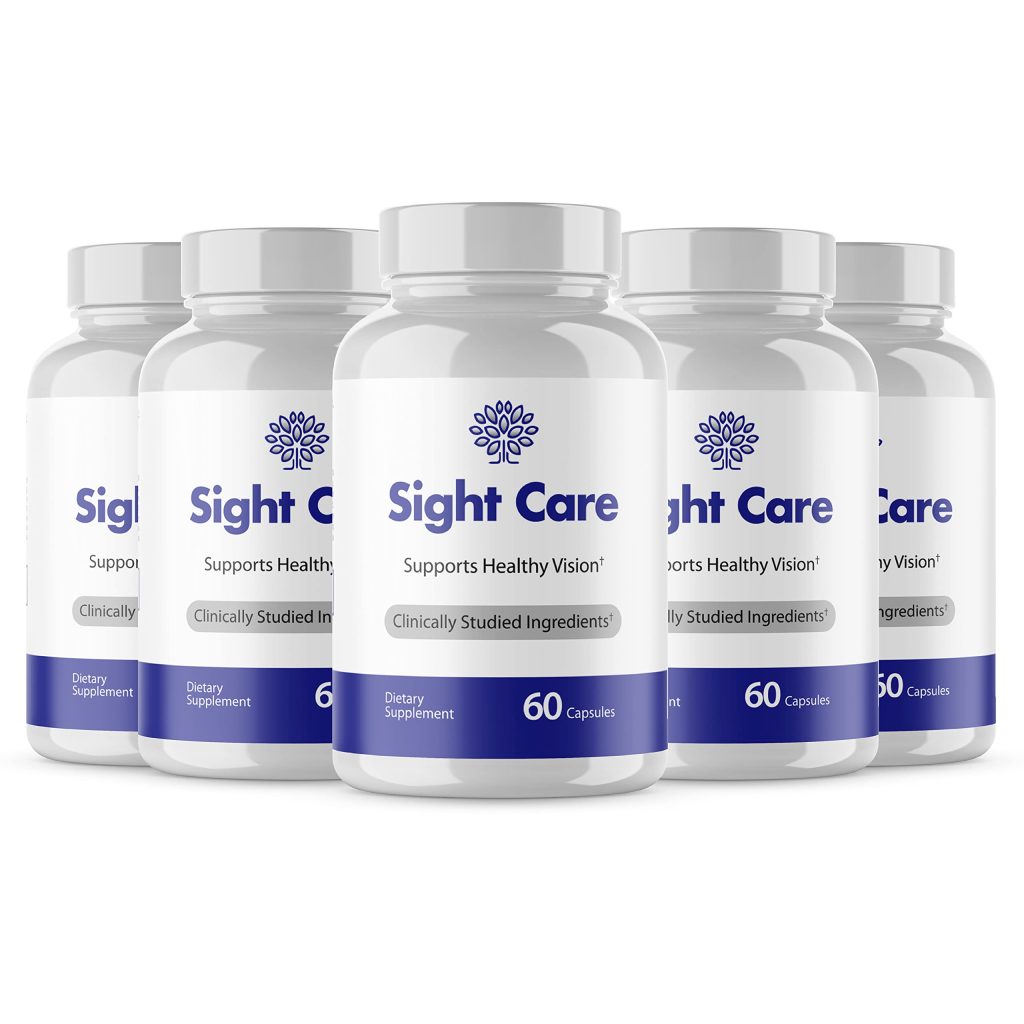
Conclusion
Taking care of your eyes is essential for maintaining clear vision and overall eye health throughout your life. While eye health supplements can provide important support, they should be seen as part of a broader strategy that includes a balanced diet, proper hydration, regular eye exercises, and good lifestyle habits.
By including nutrient-rich foods like leafy greens, carrots, and omega-3 fatty acids in your meals, practicing eye exercises, and protecting your eyes from harmful blue light and UV rays, you can take proactive steps to safeguard your vision. Supplements, when chosen wisely and used in conjunction with a healthy lifestyle, can offer additional benefits, particularly for issues like dry eyes, macular degeneration, or reducing the impact of aging on your vision.
Remember, eye health is a long-term commitment, and what you do today can significantly impact how well your eyes perform tomorrow. Always consult with a healthcare professional before starting any new supplements or making drastic changes to your routine, and be patient—eye health is a marathon, not a sprint. So, whether you’re looking to maintain your vision, protect your eyes from future problems, or address specific concerns, there are plenty of natural, supportive options available to keep your eyes feeling their best.
Lastly, if you’ve found tips or supplements that work for you, don’t forget to share your experiences with others! Together, we can create a community dedicated to better eye health and well-being.

I’m a Medical Doctor, Registered Nutritionist- Dietitian, and experienced virtual professional. I’ve Worked as a nutrition and accountability coach, academic and nutrition writer, nutrition consultant, transcriber, and virtual assistant.
